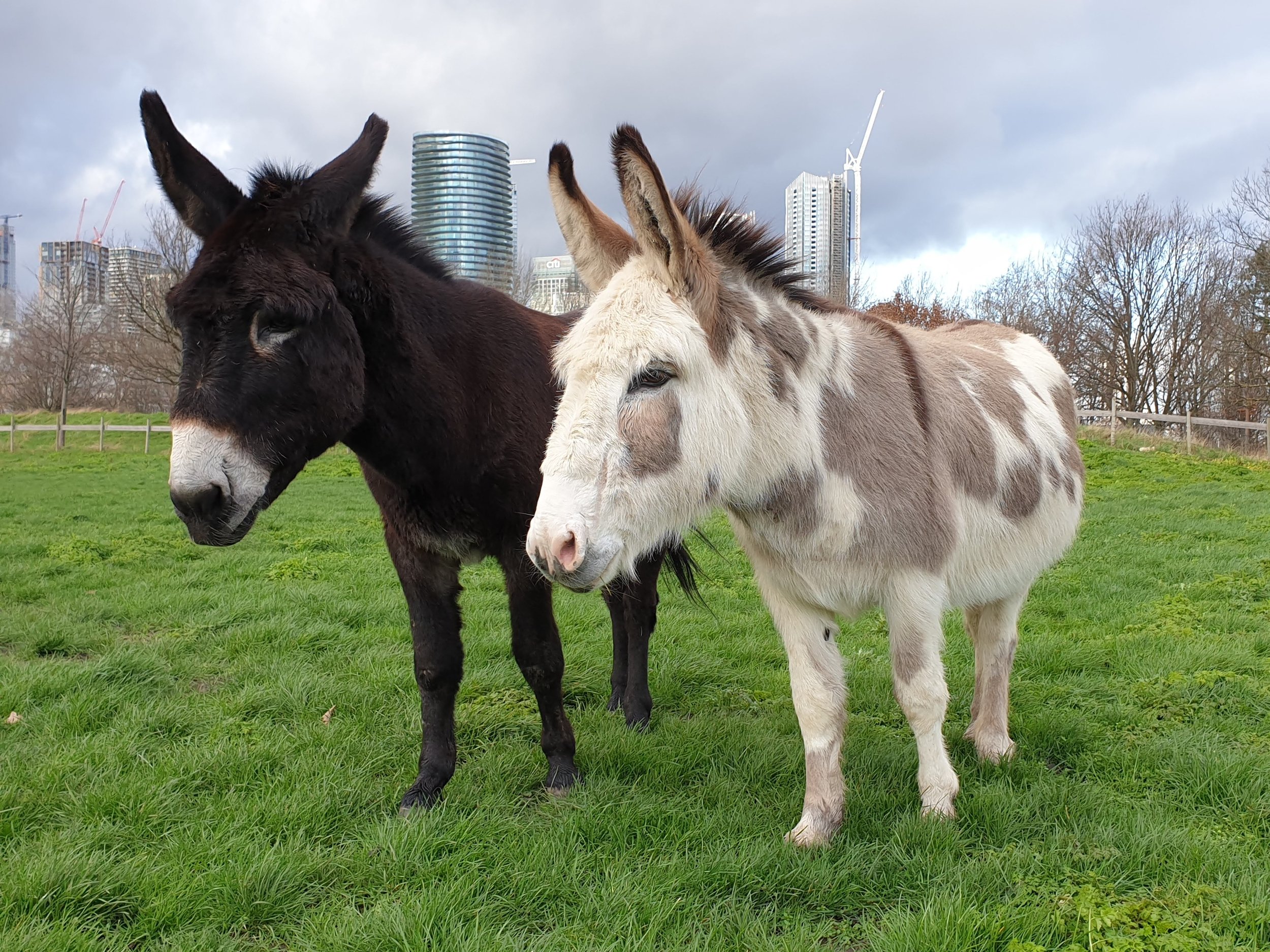
DONKEYS
Donkeys
Donkeys are related to horses and zebras, as they are 'equines'. A female donkey is called a 'Jenny' and a male 'Jack'. Like horses and ponies, donkeys are native to lush grasslands, prairies and steppes. However, donkeys are adapted to the marginal deserts, so they are adapted to survive on less nutritious foods. This is why our donkeys are fed wet hay, as the process of soaking the hay strips out some of the sugars and starches which would otherwise make the hay too fattening.
Due to their physical characteristics, particularly at the shoulder, donkeys are slower and less powerful than horses, although they do have an initial turn of speed over a short distance.
In the wild, donkeys live further spread out from each other than horses. Hence they have amazing voices, which can carry up to two miles, and of course their delightful ears which are bigger than horses, so they can more easily hear a distant neighbour.
Our donkeys join us from The Donkey Sanctuary and work regularly with local school children as part of our education programme. We are delighted to have them here with us at Mudchute.
